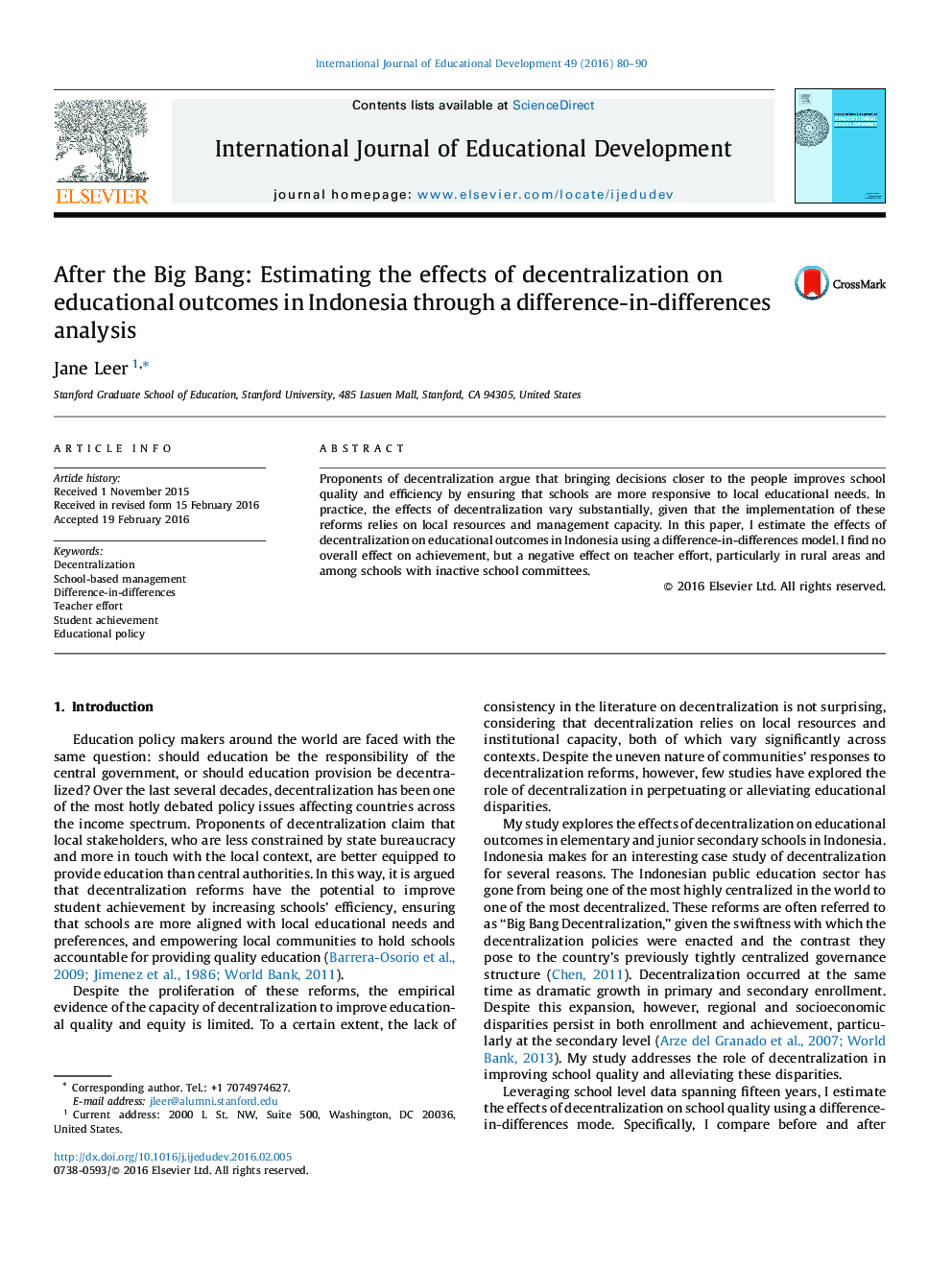| Article ID | Journal | Published Year | Pages | File Type |
|---|---|---|---|---|
| 6841201 | International Journal of Educational Development | 2016 | 11 Pages |
Abstract
Proponents of decentralization argue that bringing decisions closer to the people improves school quality and efficiency by ensuring that schools are more responsive to local educational needs. In practice, the effects of decentralization vary substantially, given that the implementation of these reforms relies on local resources and management capacity. In this paper, I estimate the effects of decentralization on educational outcomes in Indonesia using a difference-in-differences model. I find no overall effect on achievement, but a negative effect on teacher effort, particularly in rural areas and among schools with inactive school committees.
Keywords
Related Topics
Social Sciences and Humanities
Social Sciences
Development
Authors
Jane Leer,
